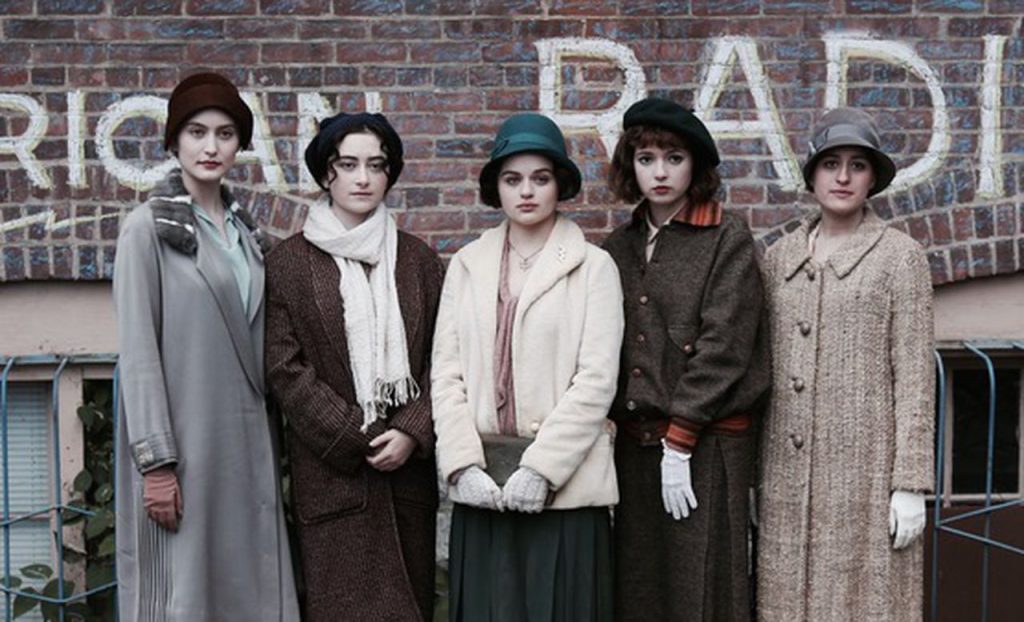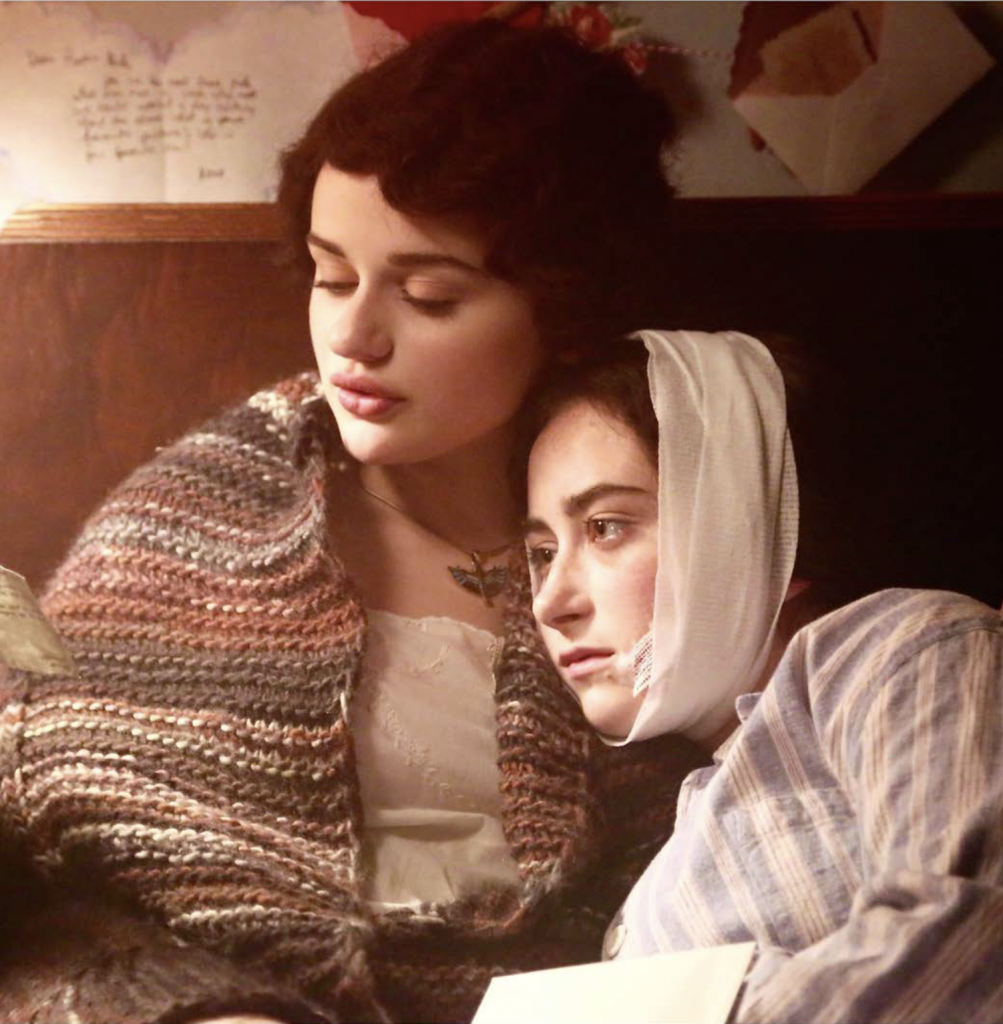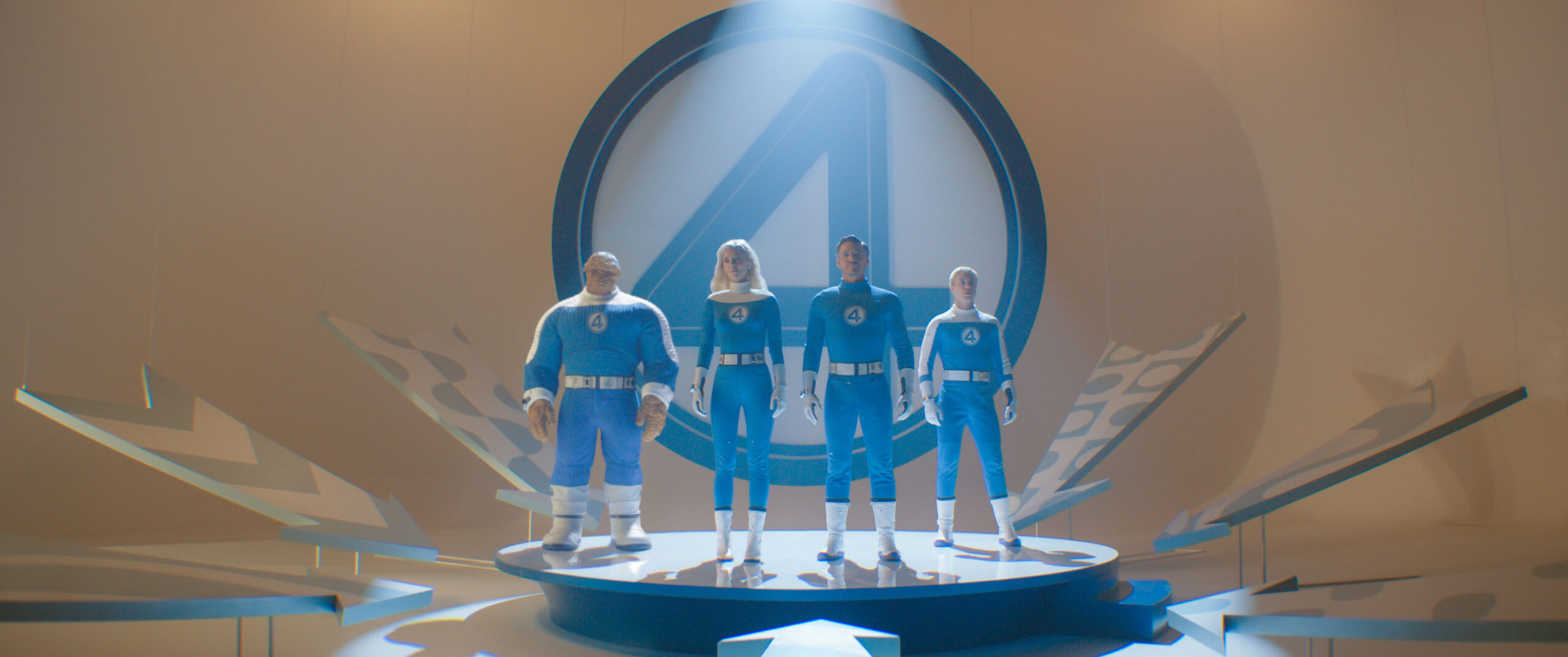Ginny Mohler is one of the film makers behind the film Radium Girls out tomorrow!
Synopsis:
Based on true events set in 1928, in New Jersey, teenage sisters, Bessie (Joey King) and Jo (Abby Quinn), dream of faraway places as the paint glow-in-the-dark watch dials at the American Radium Factory. When Jo loses a tooth, Bessie’s world turns upside down as the mystery of Jo’s disease slowly unravels. Bessie befriends two young activists and in a radical coming of age, she exposes a corporate scandal. Bessie and the “Radium Girls” file a lawsuit against American Radium. This notorious case ultimately led to a lasting impact in the area of workplace health and safety as well as the study of radioactivity.
I had the opportunity to speak with Ginny Mohler. She shared how the idea of making this film started and more…
Nancy Tapia: So I’m excited to speak to you about Radium Girls. I know you’re the writer of the screenplay, but did you originally anticipate directing the film?
Ginny Mohler: I am the co-director with Lydia Dean Pilcher. We collaborate on that together. Then I was a writer with Brittany Shaw. She and I collaborated when we first started developing a screenplay together.
Nancy Tapia: Great, so why this story? How did it come across?
Ginny Mohler: Sure. So I stumbled across the story in a way that now feels a lot of synchronicity in that moment. I had graduated from film school NYU. I was working as an archival researcher on a documentary about the atom bomb and the Manhattan Project. I came across a sentence that said, they were talking about health insurance for Manhattan Project workers, and an assistant said, “We all remembered the tragic dial painters of World War I.” And that was referring to how they understood the danger that the Manhattan Project workers were potentially going to be exposed to. I just read that and I said “What is the dial cancer? What tragedy happened to them? How is this connected to World War I?” It just seemed like such a mystery, and I’ve always been sort of fascinated by that untold sort of darker American history.
I think it’s so important and I’m sort of drawn to that and moved by it. I Googled that phrase and a Wikipedia page popped up. This was in 2012, and a Wikipedia page popped up about the Radium Girls. I read about it, and the more the corruption and the fact that they were painting these dials that were supposed to help save lives in the trenches of World War I. It was killing them, and then it glowed and that the effect of the glow was decay.

It was so cinematic inherently and so tragic inherently. At the same time, you read their stories and it’s just, along with the tragedy. It’s sort of an uplifting female empowerment, coming-of-age story of these women who really had their worlds turned upside down. Instead of just kind of quietly disappearing, like the company wanted them to. Really standing up and fighting back with everything they had. Ultimately changing those health and safety regulations for future workers with radioactivity specifically. I was working alongside Brittany Shaw, and I shared with her, and I said, “How is this not a movie?” It had all of these elements that she and I had always been sort of teenage dream world meets there’s like darker forces of corruption. That kind of real wrestling with those elements. That’s when we started writing the screenplay.
ALSO READ: The Devil Has a Name: Edward James Olmos Directs A Series Topic With A Touch Of Humor [Exclusive Interview]
Nancy Tapia: Also with this whole Consumers League. I didn’t know about it. It’s a nice intro into how it all began. I personally started looking it up.
Ginny Mohler: Yes, I think that is also one of the real underpinnings of this story that I didn’t know about, and think sometimes get left out of stories. These really unlikely heroines and court cases specifically, and one thing we really wanted to make sure is not a legal thriller about the lawyer, but it was a story about the women. Part of that story is, you just noted it, that there’s this incredible network of female activists who had this infrastructure in place in New Jersey to advocate on behalf of the Radium Girls, who provide support and information and guidance. They’ve been doing this work for many types of workers and women in different circumstances.
What’s really fascinating is at the same time there’s a radium factory, and the film doesn’t go into this. But for sort of a deeper background, there’s a radium factory in Connecticut where women are also being poisoned. Some of the same industry players are getting settlements and kind of hushing it up. One of the biggest differences in terms of the way that the Radium Girls in New Jersey are able to bring their story to light is this network of activists that are in place with the New Jersey Consumers League. The way that tied to this sort of larger topic of industrial toxicology, which was far from limited to radium, but radium is certainly right in the middle of it.

Nancy Tapia: Then the dipping the brush on their tongue to make it easier and raise their production numbers.
Ginny Mohler: I think it was actually more about the quality of the paintbrush. It was the lip pointing, as it was called. Of course at the time there was this sort of more commercial understanding that radium was healthy, so there wasn’t that pause necessarily. Although some women didn’t like the taste, just like our main character of Bessie (Joey King). That’s one of the traits that we gave her a based on another dial patron, and they didn’t like the taste or the texture. It actually came out of the China painting industry, which was used to a lot of the standard practices. It was female workers, who were sort of considered delicate work painting, but they used the lip pointing practice. So then some of those workers and that sort of industry transitioned into that practices for radium dial painting that carried over as well.
Nancy Tapia: Oh, okay. Thank you for clarifying. That was quite interesting. This film also covers both sides, the small group of women trying to really fight. Then you have the other people accusing them of instigating and afraid of losing their stable jobs. One of the characters said, “It’s easier to believe stories that make us feel safe” when it comes to denial.
Ginny Mohler: Yeah. I think because there was this narrative that these workers, these women, were lucky to have these jobs. That were many factory jobs at the time that were known to be very dangerous. If you look at some of the textile manufacturing, either you could lose a hand, you could lose a limb, and it’s loud and noisy in some of the garment factories. There was this idea that the radium dial painters were lucky. The factory was filled with sunlight, it was quiet, it was delicate work, and so I think there’s something really disruptive about the narrative that actually is dangerous.

This is dangerous and deadly and to I think, I can’t imagine what it would be like. This idea that this job that you’ve been working at for so many years, for some of them, to be told that it’s dangerous and was slowly poisoning you all along. I think that exactly what, as I said, is like it would be so much easier to believe that the other version of things. I think that that’s something that comes up today when something contradicts the way we think. I think, often that struggle to hold on, even if the facts completely contradict it, even if you’re seeing it. They were seeing their friends die, but I think then it’s like, “What does that mean? What would that mean for me if it’s dangerous, if it’s toxic?”
ALSO READ: Inna Blokhina Shares Nine Heroes Stories In The Documentary ‘She Is The Ocean’ [Exclusive Interview]
Nancy Tapia: Right. So this film actually had premiered in 2018 at the Tribeca Film Festival, correct?
Ginny Mohler: Yes, it did.
Nancy Tapia: So the film has been around a couple of other film festivals?
Ginny Mohler: Yes. We were at Tribeca and then that fall of 2018, we showed it at a few other film festivals.
Nancy Tapia: It’s great that you got a chance to experience watching it with an audience and now October 23rd coming out in select theaters and virtual cinemas.
Ginny Mohler: Yeah, it’s so exciting! I think to hear from audiences is the various themes in the film that they connect to and respond to and feel moved by. I think a lot of those themes are continuing to be relevant and especially through the conversations that we’ve had about science and research and integrity in science. To have forces at play in terms of who wants what science does to be popularized. I think that’s taken on an even deeper relevance in the era of COVID.
Nancy Tapia: Well, thank you so much, Ginny, for your time and discussing Radium Girls. I’m sure a lot of people and women are really going to appreciate this film.
Ginny Mohler: Thank you. I appreciate it.
Radium Girls will be in theaters tomorrow. You can pre-order your virtual ticket at radiumgirlsmovie.com

 FOR FANBOYS, BY FANBOYS
Have you checked out LRM Online’s official podcasts and videos on The Genreverse Podcast Network? Available on YouTube and all your favorite podcast apps, This multimedia empire includes The Daily CoG, Breaking Geek Radio: The Podcast, GeekScholars Movie News, Anime-Versal Review Podcast, and our Star Wars dedicated podcast The Cantina. Check it out by listening on all your favorite podcast apps, or watching on YouTube!
Subscribe on: Apple Podcasts | Spotify | SoundCloud | Stitcher | Google Play
FOR FANBOYS, BY FANBOYS
Have you checked out LRM Online’s official podcasts and videos on The Genreverse Podcast Network? Available on YouTube and all your favorite podcast apps, This multimedia empire includes The Daily CoG, Breaking Geek Radio: The Podcast, GeekScholars Movie News, Anime-Versal Review Podcast, and our Star Wars dedicated podcast The Cantina. Check it out by listening on all your favorite podcast apps, or watching on YouTube!
Subscribe on: Apple Podcasts | Spotify | SoundCloud | Stitcher | Google Play




